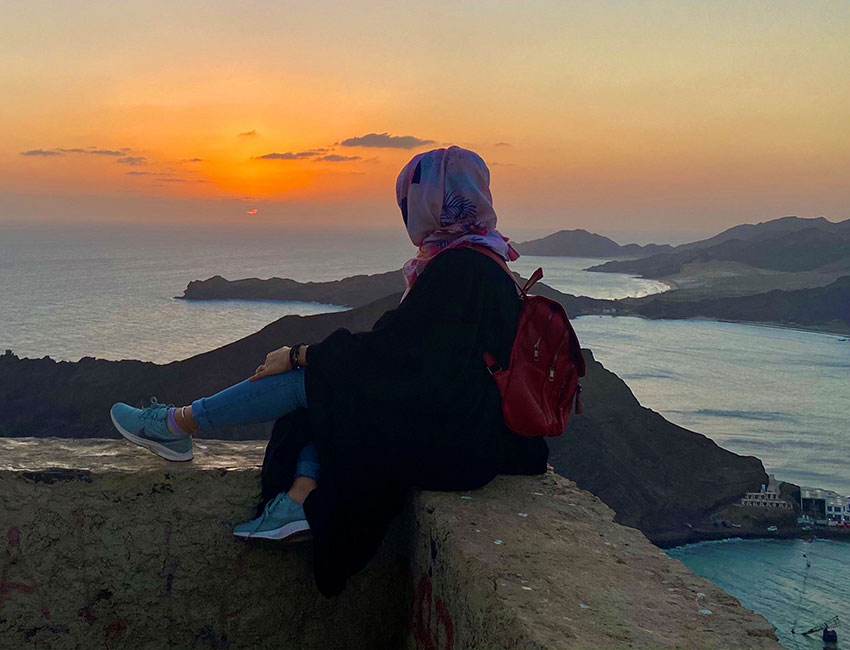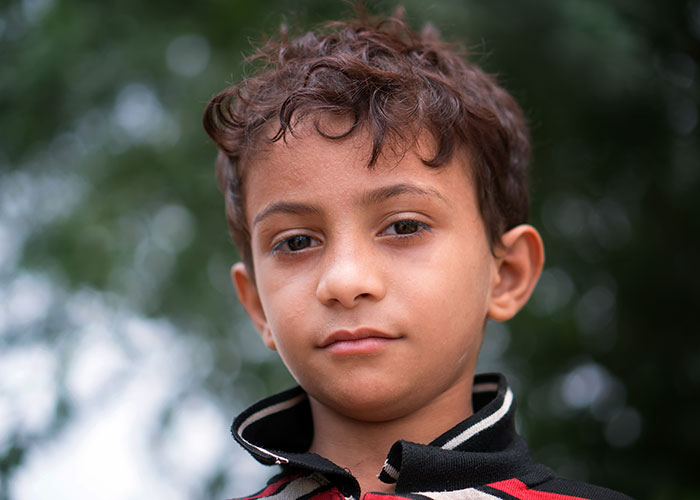Where I grew up, in Yemen’s Lahj Governorate, was filled with joy and fun. My older brother, sister, and I used to go with our grandmother to the green fields every harvest season to play, watch people and help relatives gather their fruits and vegetables. It was like a festival, with everyone happy and enjoying their time.
My older brother used to wake up early in the morning and say to me, “Nada, would you like to go for a bicycle ride to the local market?”. Even if I was sleepy, my answer would always be yes.
I would wash my face and put on my favourite Barbie long-sleeved shirt. We would ride the bicycle together, with me in the back, hanging tightly onto his shirt and closing my eyes to feel the sweet morning breezes hitting my face, and enjoying the smell of fresh bread coming from the market. We would buy some bread for breakfast and it was always fun to eat some on our way home.
I was seven years old then, my brothers were nine and four and my sister was 11.
My parents are both science teachers. My mum teaches chemistry at the local high school in the village and my father teaches biology at the medical school. They met and fell in love while they studied in college.
They didn’t want to live in a village, it was just temporary until they could find a decent place to live in the capital city, Aden. When I was eight, we moved there. I was so excited for school – and I was good at it. I met three friends who are still my best friends today.
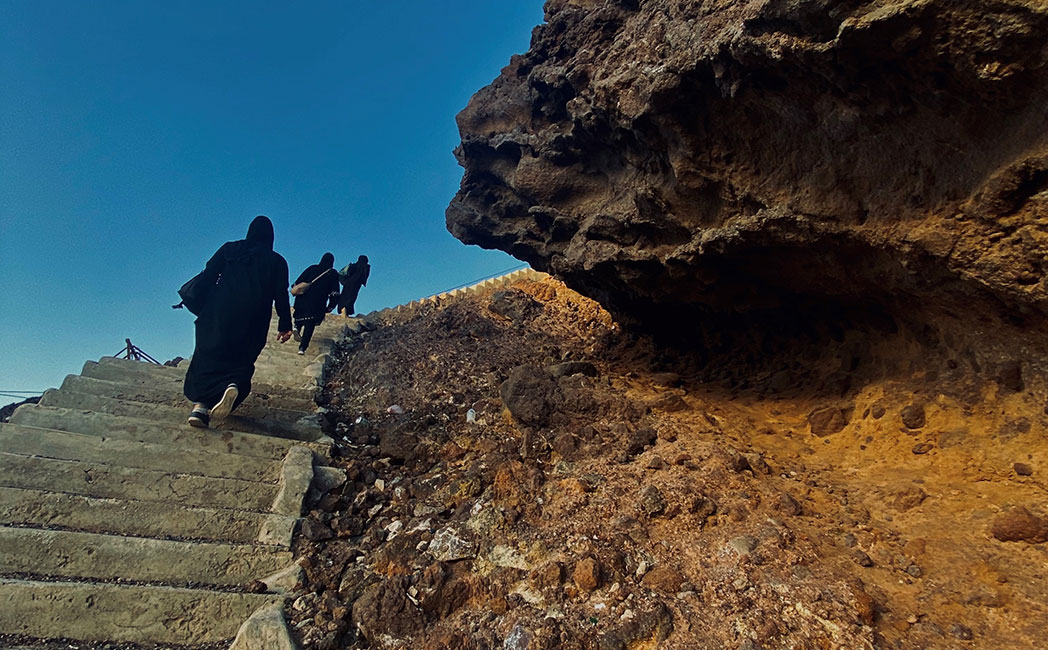
Nada and her friends climb the stairs of Alburyqa Castle. Photo credit: Nada al-Sadaq/ Action Against Hunger
Life was good – it had a smooth rhythm. After school, I would take my brother and my scooter to play in the neighbourhood before going home to do my homework.
Then the war began.
Everyone around us was escaping the city, but we couldn’t. The airport was closed and the only way to flee was by road. It would’ve been too difficult for my little brother, who was ill and had a disability. My mum said we will be strong together and we will survive.
It’s hard to describe what it’s like to live in a war. There were food shortages. The air was filled with booming and shooting all the time. We felt airplane attacks that rocked the whole building and heard the sound of our neighbours’ children crying in fear.
There is so much disappointment and despair. My favourite restaurant, my hang out spots with my friends, my beloved school – they are all ashes now. My childhood friends joined the army and many have died. My beautiful village is burning and the gardens are deserts. I used to draw and read a lot, but I stopped. I felt like I had to erase my beautiful memories and they were replaced with emptiness, fear and depression.
You never know if it will ever end. You aren’t just scared to die – you fear severe injuries or not being able to reach a hospital in time to help yourself or a loved one.
We used to sleep in the room in the middle of our house, but it was so scary to hear the booming nearby. You sleep with all of your senses awake, awaiting horrible things. When you wake up, the first thing you do is turn on the TV and search for hope between the horrible news.
Every day is the same day, if not worse. You question everything about the future: Am I going to get my degree? Am I going to have a job? Am I going to fall in love?
Am I going to live?
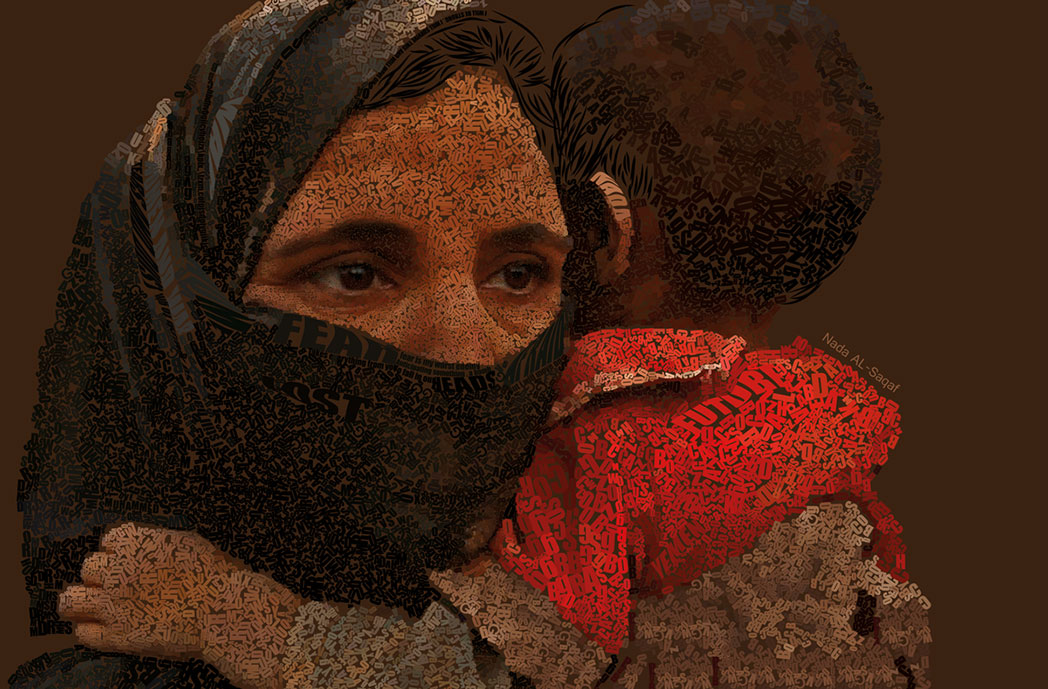
Artwork by Nada al-Sadaq.
When the war broke out, I had one term left in college. I waited and waited for the school to reopen so I could finish my degree. When it finally did, I graduated and was hired to be an instructor.
Then I met him – the love of my life.
He came to me asking for design advice and we worked together to make t-shirts. We were partners and friends, and then our relationship grew into love. He proposed a year later, and I didn’t hesitate to say “yes.”
We’ve been married now for two years. I have never regretted it – not once!
He supports me in every step I take. With him by my side, I became a better person, a stronger woman, knowing that I have a solid shoulder to lean on. He let me be the person I want to be and never tried to change a single thing about me. I felt like I was falling in love with myself again.
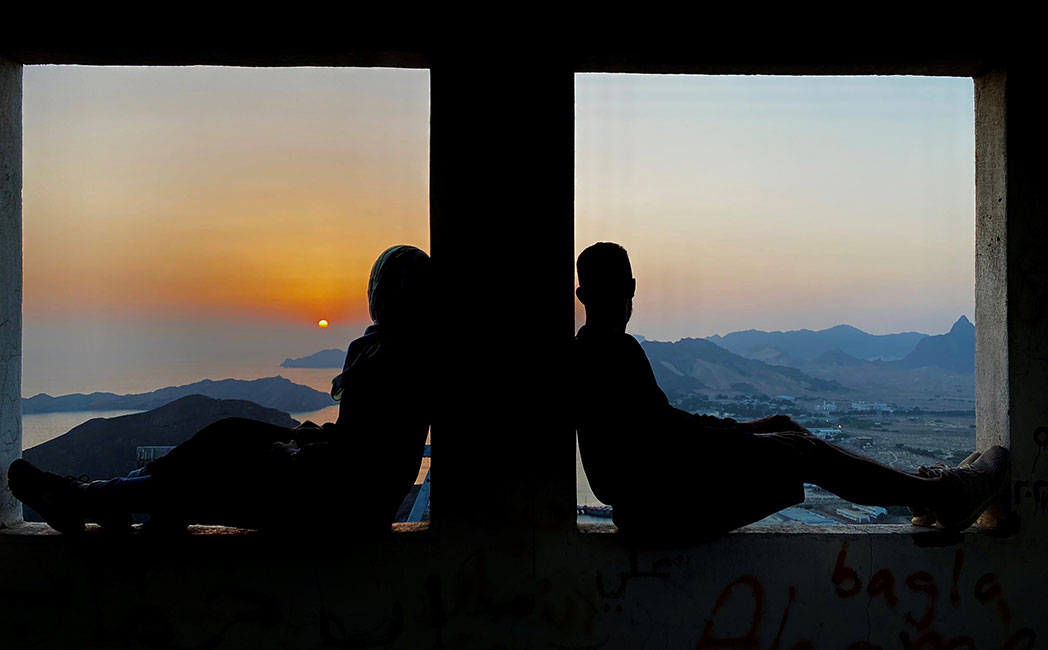
Nada and her husband.
I worked as a designer for Oxfam and ADRA, and now I work with Action Against Hunger as a Communications Officer.
In my work, I meet people who suffer deeply as a result of the war. It breaks my heart. Most of them were forced to leave their homes, living in tents or rented houses that they can’t afford. They have no money, and are trapped by their debts. Their children are malnourished. Being part of Action Against Hunger gives me the chance to share their stories with the world.
Yemen is the world’s largest humanitarian crisis. Whenever Yemen is in the news, the world only sees stereotypical images of starving children and destruction. It’s painful and numbing at the same time.
For all the people whose children are malnourished, whose homes have been destroyed, those who have broken dreams and lost loved ones, everyday life is a living hell.
Seeing my country like this tortures me. I know how good the Yemeni people are. They – we – deserve a decent life. I am pregnant with my first child, and this worries me all the time. What kind of a life are they going to have? If they get sick, how can I trust an under resourced health system?
Living in Yemen means you worry about everything – from electricity to water to gas to money. Nothing around you is stable. You forget your dreams because real life is so harsh. You can barely make it through the week without getting insane. Every day, living requires so much mental strength.
I wonder: what will I teach my child about this country? How will I make them feel proud that they are Yemeni when all that surrounds them is destruction?
But nothing stays the same forever and I still hope that something will change for the better. I don’t know how or when, but I know that I will do all I can – with all I have – to serve people in need and to stay positive and hopeful.
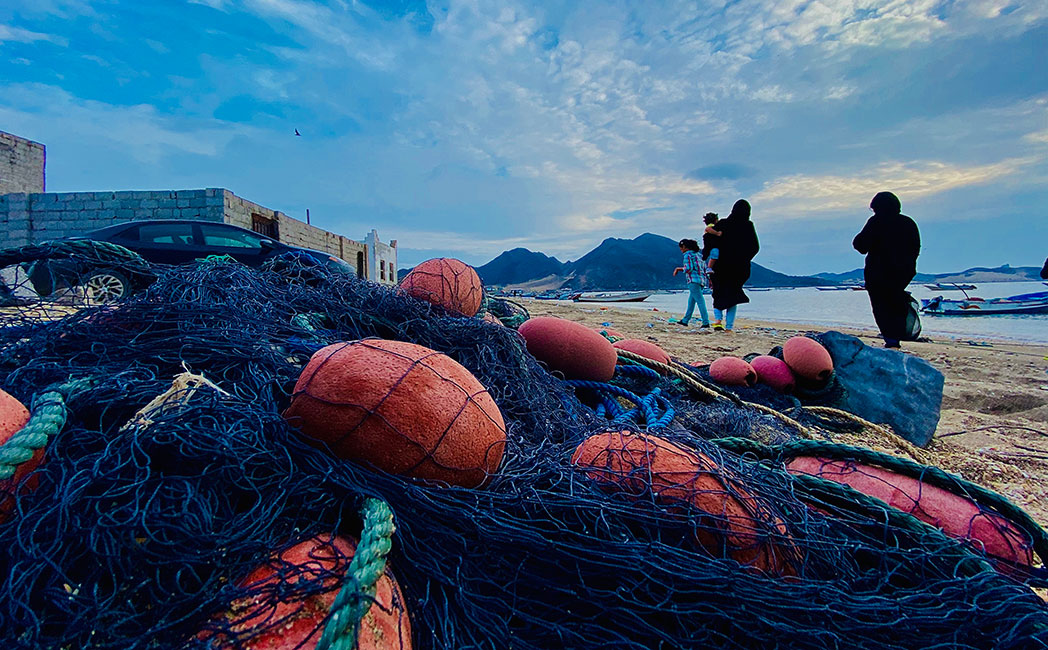
Nada and her family on a beach near Aden, Yemen’s capital.
Thanks to the players of the People’s Postcode Lottery, Action Against Hunger UK is able to help build the communication skills of our staff in the different countries where we work. With the players’ support, our storytellers in several countries are able to represent their communities more authentically; building trust and empowering people who are caught up in crises to tell their stories.

